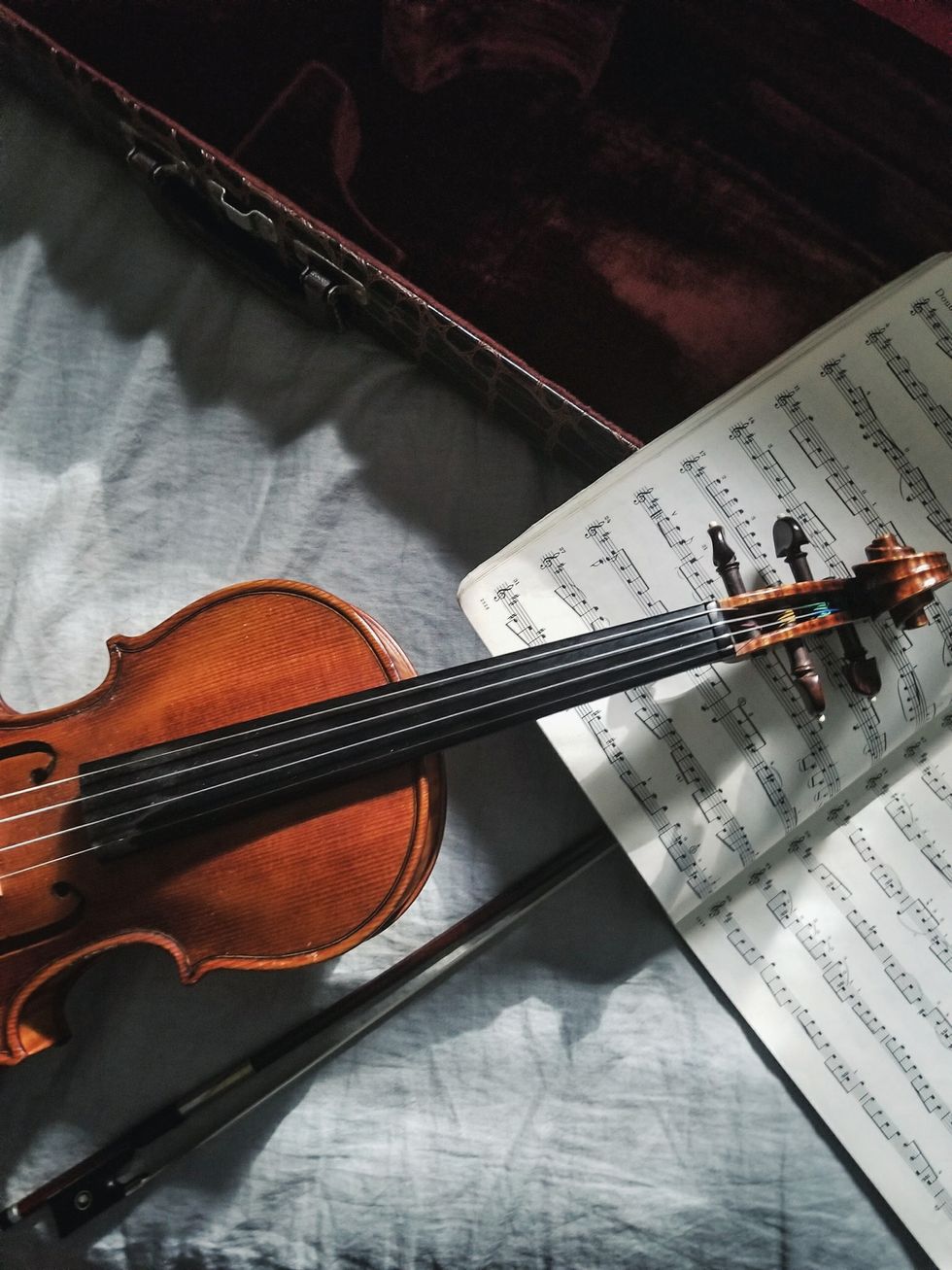As a musician and a graduate music therapy student, I am, of course, a strong advocate for music in every way. I could write pages and pages on why music is good for you and present research to back it all up entirely.
However, that wouldn't be too fun for you to read so instead, here is a short list of how music is good for you!
1. It lowers stress.
This one can mostly be supported by common sense. Yes, music can sometimes be stressful. But don't we reach for music when we need to relax, when we're irritated, or just so done with the day, we need to chill out?
Scientists agree, too. According to the American Psychological Association, music reduces levels of the stress hormone, cortisol.
(more info here: http://www.apa.org/monitor/2013/11/music.aspx)
2. It provides a connection to others.
Have you ever listened to a song and thought, "wow, that's exactly how I'm feeling..." because the lyrics were so spot on? Or listened to beautiful instrumental music and felt like it touched your soul? That's what music does.
In an article about how music strengthens social bonds, we can read about music encouraging cultural cohesion. The meanings behind music can be shared generationally and across cultures, providing a connection that sometimes words and actions alone cannot accomplish.

3. Music, especially lyrics, are relatable.
As previously mentioned, music can connect people. Lyrics can reach out and touch us - sometimes more so because they are sung rather than just written on a page. Think of all the songs you listened to as a teenager. Now think of the reasons why you listened to them. Could it be because of the lyrics and what they meant to you at that time?
4. Music provides an outlet for self-expression.
Singing, songwriting, playing musical instruments, participating in bands or ensembles in which you can perform alongside others who appreciate music the way you do...these are all ways of expressing yourself through music. In fact, music has even been referred to as a bridge to our inner feelings, or a way to transmit our emotions to the outside world (see article below).

5. Music has therapeutic qualities.
Of course, as I mentioned earlier, I believe in the use of music as a therapeutic tool, hence the reason I'm dedicating my life to studying and pursuing a career in music therapy. However, even without formal training, music can be used somewhat therapeutically by anybody, in a certain sense. In fact, whether you realize it or not, many of us use music in this way every single day.
Do you listen to music while you're in traffic? While you study? While you cook or clean? Do you use music to help you fall asleep or to help you calm down after a stressful day?
Music can trigger emotions and our bodies physiologically respond to music. Stressed? Listen to music that you think will slow your heart rate. (Also good for falling asleep). Sleepy? Upbeat, rhythmic music is a good choice because our brains and our bodies respond to music and can become motivated by it!
More info on music and the brain here: https://blog.brainhq.com/2010/04/22/top-12-brain-b...
6. It's entertaining.
Music plays a huge role in our society today and has for many decades, if not centuries! The music industry raises billions of dollars in revenue annually in the U.S. (an estimated $19 billion this year alone!) Much of what we do for entertainment involves music in some way. Live concerts, movies, radio, television, etc. Music is the common thread that weaves through arguably every possible form of entertainment.
Music Stats: https://www.statista.com/statistics/259980/music-i...
7. It cultivates life, history, and culture.
All of a culture's traditions and norms typically involve music in some way. Music is used to celebrate, to tell stories, and to be a treasured part of life. Music, in some form, is represented in every culture. According to Oliver Sacks in his acclaimed novel Musicophilia, music "shows itself in infancy, is manifest, and central in every culture, and probably goes back to the very beginnings of our species."
8. It makes you happy!
While this seems like an obvious assertion, studies have actually shown that listening to music can release endorphins. In fact, the areas of the brain that respond to music are the same areas that are stimulated by food, sex, and drugs. For a quick and interesting read and more references, click here: http://serendip.brynmawr.edu/bb/neuro/neuro06/web1...
So there you have it. Music is fun, entertaining, and relatable...and it's good for you!

























